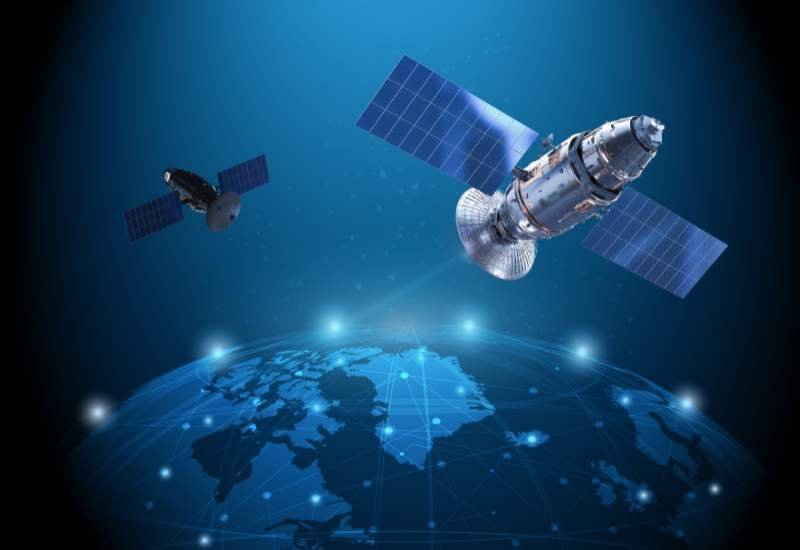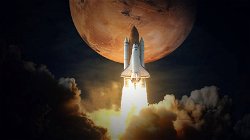Artificial Intelligence plays in Assisting Humanity's Exploration of the Solar System
Aaron Alston
. 2 min read
The use of artificial intelligence (AI) helps astronauts endure the rigors of space travel and accomplish tasks that, if left to human capabilities alone, would be impossible. These tasks include the completion of tasks that would be impossible in space. AI has shown its immense potential and is a game-changer in several areas of space research, including charting unknown galaxies, stars, and black holes; analyzing cosmic occurrences; communication; autonomous StarCraft navigation; monitoring; and system control. Programming plays a vital role in harnessing the power of AI for system control in space exploration. Skilled programmers work to develop algorithms and software systems that enable autonomous control and management of spacecraft systems.

Revolutionizing Space Exploration with Artificial Intelligence and Robotics
1. Robotics and Automation
The ability of artificial intelligence to independently navigate around obstacles is leading the way to the growing importance of AI in the field of space exploration. However, this is not a recent development. On the surface of Mars, rovers such as Curiosity and the Mars Exploration Rover have been conducting fully autonomous navigation drives for more than ten years. The sensors on the rover are able to identify potential environmental dangers, including rocks, craters, and other features.
2. The Gathering of Data
The massive amounts of data that are gathered by scientific missions such as deep space probes, Earth-observing spacecraft, and rovers will be easier to analyze and optimize with the assistance of AI automation. In addition to this, it will be helpful in evaluating these data and disseminating them to end-users. This is because AI will be able to find and classify normal features, such as common weather patterns, from atypical patterns, such as smoke from volcanic activity.
3. NASA's Observations of the Sun Have Been Made Easier Thanks to Artificial Intelligence
Calibration of some of NASA's images of the Sun is currently being done with the assistance of some artificial intelligence techniques by a group of researchers. This is helping to improve the data that scientists use for solar research. On April 13th, 2021, a new method was detailed in an article that was published in the journal Astronomy & Astrophysics. Since its beginning operations in 2011, the Solar Dynamics Observatory, also known as SDO, operated by NASA.
4. Assistants in outer space that are enabled with AI and provide support to astronauts
There have been a variety of AI assistants developed to support astronauts as they carry out the many different missions that are available to them while they are in space. IBM, Airbus, and the German space agency DLR collaborated on the development of CIMON, which stands for the Crew Interactive Mobile Companion. Robonaut is a companion that NASA is developing for its astronauts to have while they are stationed on the International Space Station.
5. Using artificial intelligence to solve problems related to space debris
In the near-Earth environment, which is becoming increasingly cluttered, an artificial intelligence-driven space debris-dodging system could soon replace expert teams that are dealing with increasing numbers of orbital collision threats. The European Space Agency (ESA) made a request to the global community working in the field of artificial intelligence (AI) for assistance in developing a system that would either automatically avoid space debris or at the very least lessen the workload of the expert teams.
6. The Processing of Images Obtained From Satellites
The quantity of data that is gathered by satellites orbiting the Earth is simply enormous. For instance, the image library of Maxar Technologies, a space technology company with headquarters in Westminster, Colorado, contains more than 110 petabytes of data, and the company adds more than 80 terabytes of new data every single day. Utilizing the services of data centers is an essential component for satellite startups like Planet and others.
Conclusion
In conclusion, artificial intelligence (AI) has become increasingly important in various aspects of space exploration, including autonomous navigation of rovers, data analysis and optimization, calibration of images, assistance to astronauts, space debris-dodging, and image processing from satellites. AI has proven to be a valuable tool in solving various challenges related to space exploration, and it is likely that it will continue to play a critical role in the future of space technology.
More Stories from
Recent Developments in Space Exploration: Discoveries and Missions
The article highlights recent developments in the field of space exploration, including the discovery of the largest comet.
Clearing Space Junk: Methods and Risks
This article discusses the problem of space debris and the various proposed methods to address it.
Exploring the Final Frontier: A Glimpse into the World of Space Research
From probing distant galaxies with space telescopes to charting the potential for human life on other planets, this article provides a glimpse into the evolving field of space research.
Connected Cosmos: Embracing the Future of Space Exploration with Video Chat
Discover the potential for human colonization of other planets, breakthrough propulsion systems, and the expansion of our knowledge of the universe through space-based astronomy.
Chandrayaan-3: India's Ambitious Lunar Mission for Scientific Exploration
Chandrayaan-3, India's third lunar mission led by ISRO, aims to overcome past challenges and demonstrate soft landing capabilities on the Moon.








.png?width=40&aspect_ratio=1:1)


